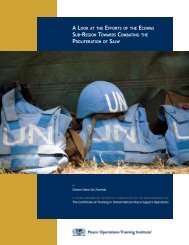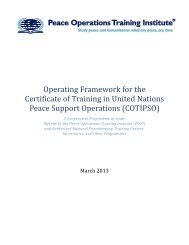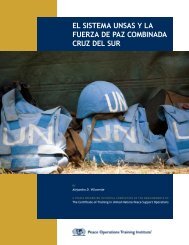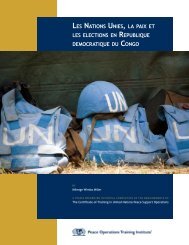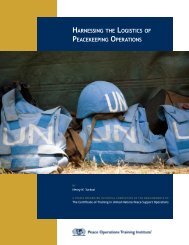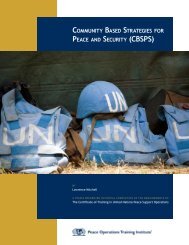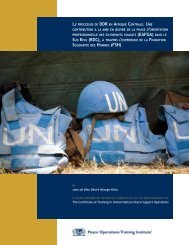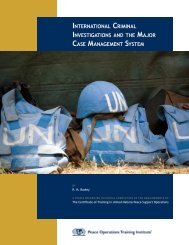money laundering best practices, lessons to be learnt and steps
money laundering best practices, lessons to be learnt and steps
money laundering best practices, lessons to be learnt and steps
- No tags were found...
Create successful ePaper yourself
Turn your PDF publications into a flip-book with our unique Google optimized e-Paper software.
egistration of Exchange Offices. The Law does not prescri<strong>be</strong> licensing <strong>and</strong> registration for otherfinancial institutions.In spite of the requests set forth in Recommendation 24, Croatian Legislation does not seecasinos as a specific subject that would need a separate <strong>and</strong> more rigid regula<strong>to</strong>ry system <strong>and</strong>treats them regularly. As such, they have the same duties <strong>and</strong> obligations on reporting suspicioustransactions as banks, as set forth in Art 2 of the Law on Prevention of Money Laundering.Croatian Office for Prevention of Money Laundering is not compelled by Law <strong>to</strong> provideinformation feedback <strong>to</strong> any financial institution or designated non-financial business orprofession on reported suspicious transactions. However, in the past few years, on its owninitiative, the Office has provided such information on reported transactions <strong>to</strong> banks. Still, it hasnot <strong>be</strong>en happening on a regular basis <strong>and</strong> can not <strong>be</strong> observed as a trend.The Rulebook on the Implementation of the Law in Art 12 Para 2 regulates the obligation of theOffice <strong>to</strong> compile a list of indica<strong>to</strong>rs for recognizing suspicious transactions. There are four setsof guidelines as follows: banking sec<strong>to</strong>r, lawyers <strong>and</strong> accountants, casinos <strong>and</strong> exchange offices.In accordance with Recommendation No 26, which regulates establishment of the FinanceIntelligence Unit, Republic of Croatia established the Office for Prevention of MoneyLaundering. The Office operates within the Ministry of Finance, Financial Police. It collects,processes, analyses <strong>and</strong> s<strong>to</strong>res data received from obliga<strong>to</strong>ries, <strong>and</strong> provides the information <strong>to</strong>the relevant authorities, which the Office uses <strong>to</strong> undertake measures for prevention of <strong>money</strong><strong>laundering</strong>. The Office, Financial Police <strong>and</strong> Ministry of Internal Affairs work <strong>to</strong>gether veryclosely in the implementation of measures for prevention of <strong>money</strong> <strong>laundering</strong>. 16The Office for Prevention of Money Laundering has direct access <strong>to</strong> the tax authorities, butaccording <strong>to</strong> the information from the Office, this access is not used very frequently. In itsinvestigations, the Office, more often explores indirect approaches.16Art 3 of the Law on Prevention of Money LaunderingMoney Laundering Best Practices,Lessons <strong>to</strong> <strong>be</strong> Learnt in the Balkan RegionWritten by Tamara BrneticPage 25 of 58




